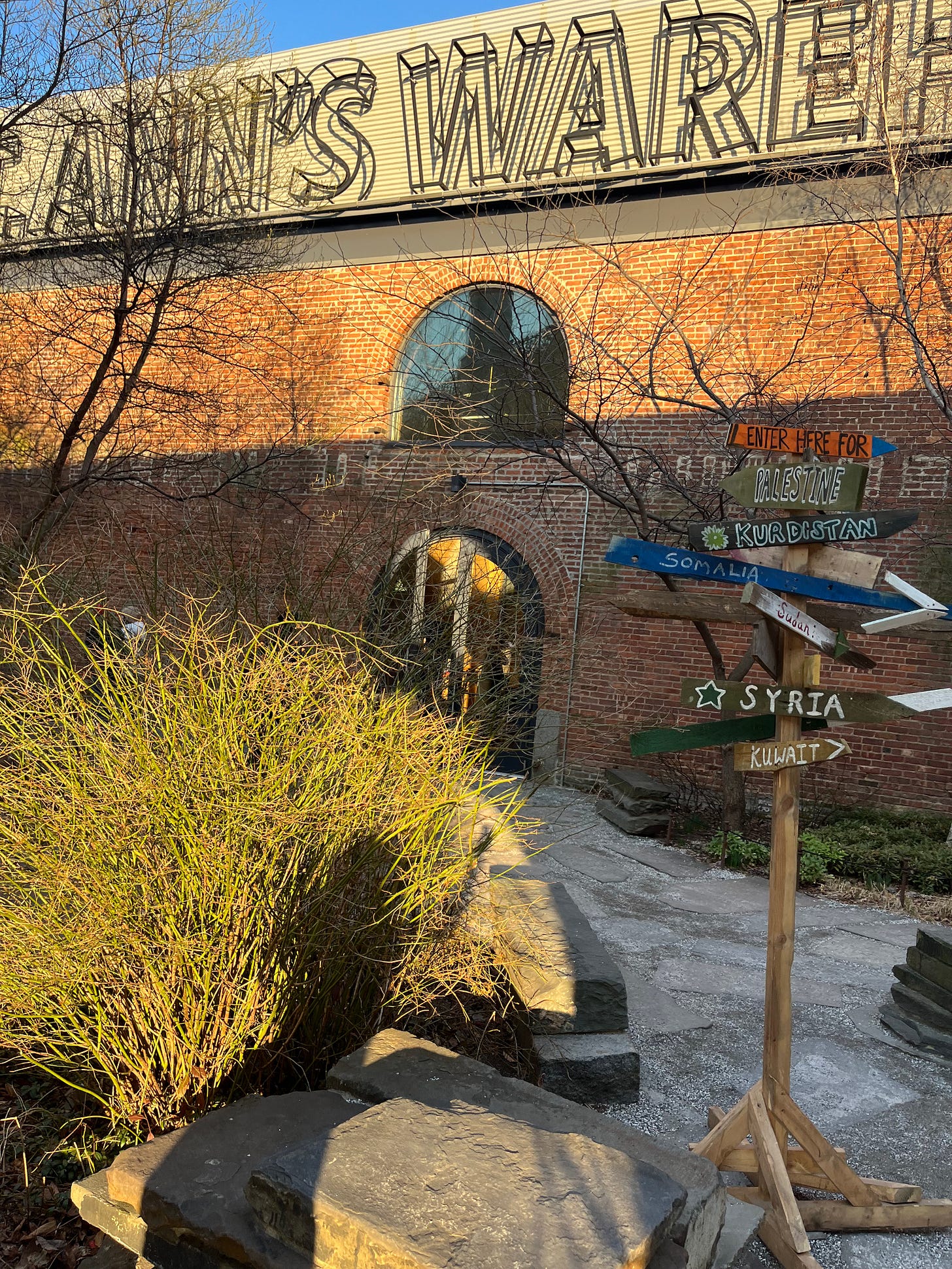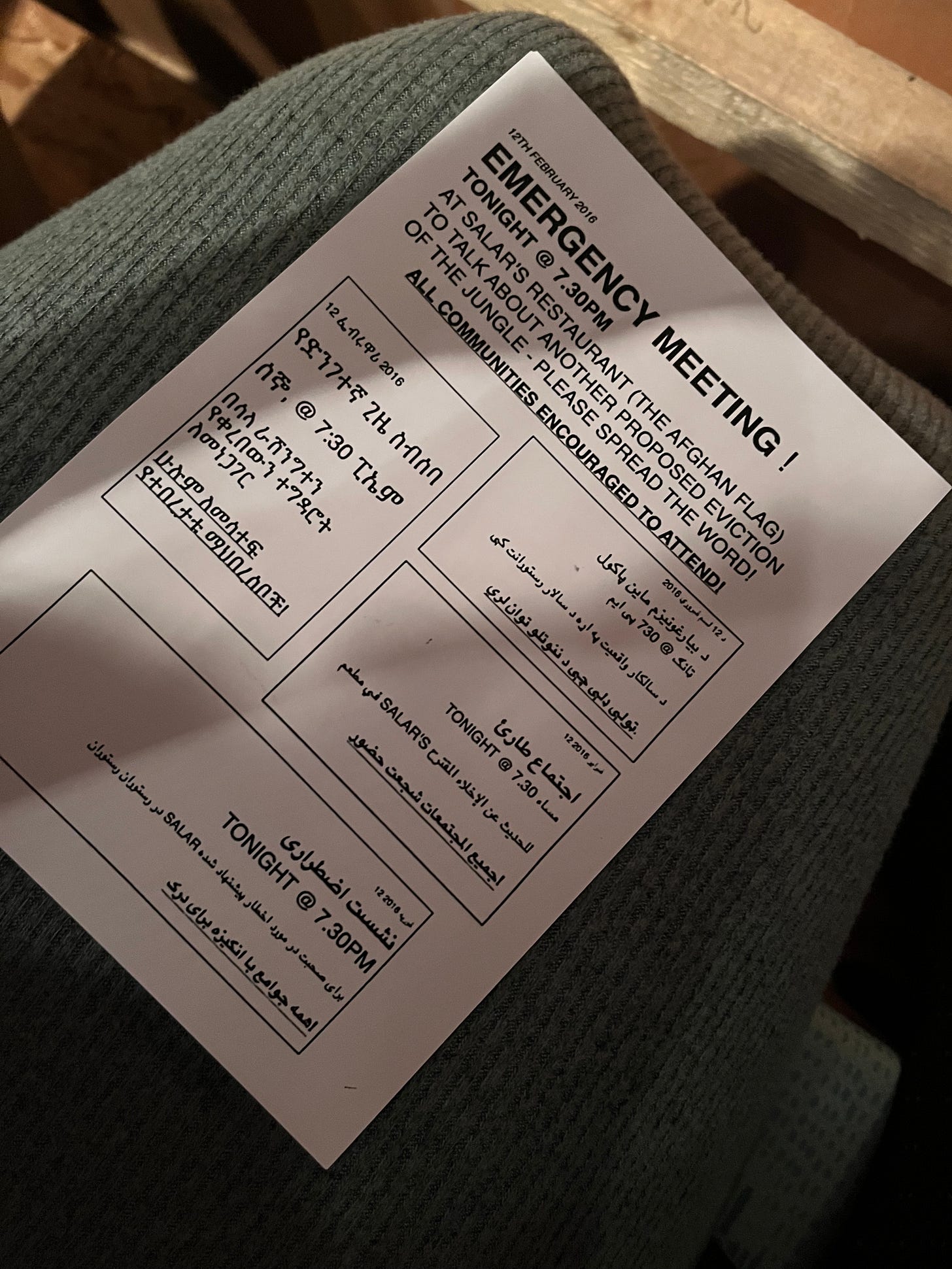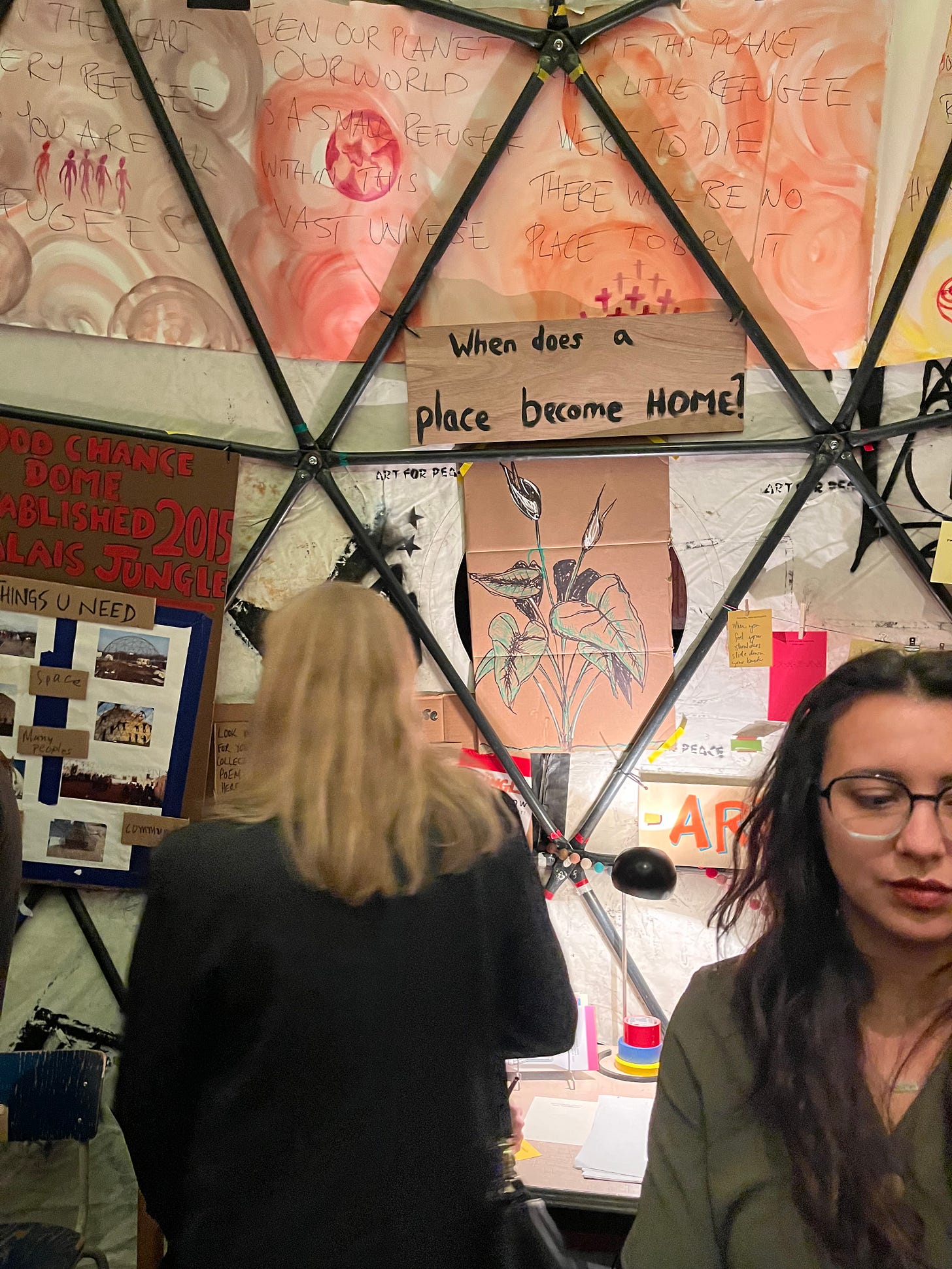Hi everyone,
I’ve just returned from 10 amazing days in Israel with my family, and I’ll be putting together a guide with all the essentials on where to stay, eat, play, and run (naturally) in the next week, so stay tuned for that. Spoiler alert: it was all amazing.
For now, as I emerge from the fog of vacation, that feeling where you wake up and don’t quite know where you are, where your body is still living partly in a different time zone, where your heart is still making its way across the world, I want to share a little about a play I was lucky enough to see last night thanks to my friend Dawn Casale who had an extra seat for opening night. (Dawn’s restaurant, Dawn’s til Dusk, is doing all the food and drink for this play and all St. Ann’s productions, so that’s another reason to go. Whoopie Pies.)
Written by Joe Murphy and Joe Robertson (watch this video of their journey to report and write the play here), it’s called The Jungle and it’s at St. Ann’s Warehouse for the next few weeks. (It closes March 19th and then goes to DC.) It’s a production that puts you inside the refugee camp in Calais, France that came to be known as the Jungle, a place of gutted desperation and unstoppable hope.
The Jungle is a collection of little country-specific neighborhoods that grew from the ground up, built by hand by volunteers, aid workers, and its residents —men, women and children fleeing from Syria, Afghanistan, Iran, Iraq, Darfur, Eretria, and more, who found themselves making their way by overcrowded boats across the sea, to try to apply for asylum in the UK, but are stopped in Calais.
During the three hour immersive play, you are seated in the Jungle’s Afghan Cafe built by Salar, a refugee from Peshawar, who runs a restaurant right next to the camp’s Good Chance Theater (yes, a theater company set up here) to serve the various souls attempting to make a life from plywood and canvas homes, microfiber tents, and donated socks. Salar’s cafe is a place where everyone gathers: for strong coffee, warm bread, a bowl of rice, a smile, a laugh, a shared beer in the evening, a small moment of normalcy inside a world deeply immersed in despair.
Salar’s cafe even gets a mention in a story about the Calais camps by the Times of London’s AA Gill.
“Next door [to the theater], a Peshawari man makes rotis in a small bread oven, taking the tennis ball sized white dough, patting it and flipping it onto a cushion and then sticking it to the inside wall of the stone. Some of the best unleavened bread I’ve ever eaten was in Peshawar, and this was as good as I remember,” he writes. “The dishes come hot and generous, with fluffy nutty white rice. The red beans are a great solid aromatic dose of slow release carbohydrate, as warm and uncomplicated as a hug.”
Here in the Jungle, we meet the children, the mothers, the boys, the men, the varied searching souls who have fled various atrocities in hopes of building a new life, marooned in the border town of Calais, where the French government harasses them and polices them as they stare at the cliffs of Dover they cannot reach. Here they try to find and pay smugglers to get them to the UK, as they fluctuate between despair and hope, wondering how many days they will live in limbo before they can start over. In the meantime, a community, something of a home, grows up around their swirling doubts and dreams.
The production is incredible in every way: the story, the acting, the creativity of the direction. The St. Ann’s team transforms the entire theater (lobby, coat check, ticket booths, everything) into the world of the Jungle. You travel through the Good Chance Dome, first built in 2015 and moved to New York from Calais. The Dome was built to be a meeting place for the residents of the camp to come together in a safe space to make art, graffiti, poetry, and more, a center for dumping the pain, stress, anxiety of living in a refugee camp, and making it into something more than grief and uncertainty. You can add to the art; the Dome has a big table where audience members can leave poetry, drawings, doodles, what have you, in response to what they have just experienced in the play.
At the end of his story about the Afghan Cafe in the Jungle, AA Gill writes: “The desperate desire of everyone is that this is a temporary stop. A brief bold trying moment. But despite the best intentions the Jungle is beginning to become a place, with churches, theaters, and art and restaurants. It’s germinating into a collective home. But then isn’t that how all places begin? With refugees stopping at a river, a beach, a crossroads and say, we’ll just pause here for a bit. Put on the kettle and kill a chicken?” Yes, it is. And yet it would not be for the Jungle.
The play follows the camp from its birth through its execution, bulldozed by the French. It’s end is not sugar coated. We are shown the near manic generosity of volunteers who fight with every ounce of their lives to save these refugees, to keep the camps open, to no avail. And yet, there was this place, this stitched up world with different nations living, praying, eating, dreaming, sleeping, waking, dying, side by side, with a theater, a restaurant, a school, surrounding a small water source, just off to the side of a busy motorway.
We are asked during the play, when does a place become a home? But also, for me, I also wonder, when does a human life matter enough to be saved?
The Jungle is playing at St. Ann’s Warehouse in DUMBO through March 19th. Tickets here.








